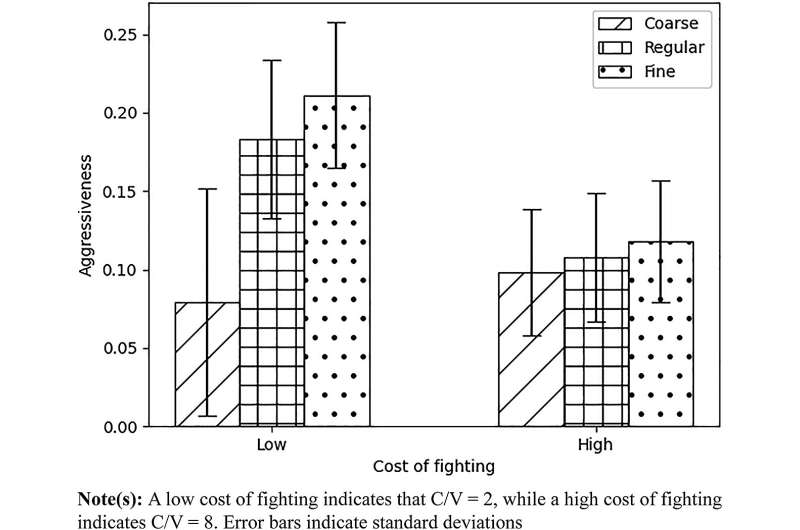This article has been reviewed according to Science X's editorial process and policies. Editors have highlighted the following attributes while ensuring the content's credibility:
fact-checked
trusted source
proofread
Miscategorization fuels discrimination within organizations and workplaces, say researcher

How does discrimination arise? A new paper by Muhammed Alperen Yasar, Ph.D. student at Ca' Foscari University of Venice and Paris I Pantheon-Sorbonne University offers valuable insights into the development of discriminatory behaviors in organizations.
The study "The emergence of discrimination due to miscategorization" was recently published by the International Journal of Organization Theory & Behavior.
The starting point of the research is the emergence of discrimination based on observable characteristics; that is, when traits such as race or gender, although irrelevant to the situation at hand, lead individuals to presume differences among them. The end result explains a culture of discrimination based on miscategorization in the workplace, as labeling people into a category tends to bind the same people into that category, regardless of its relevance or the initial difference in the groups.
Yasar's research presents a new perspective, as his is the first paper to investigate the emergence of discrimination without assuming prior differences between groups. No initial population difference is needed to explain the rising of discriminatory behavior. As the paper concludes, the mere presence of agents who label categories based on observable traits may be enough to lead to the formation and persistence of discrimination.
These results are part of the research project EPOC (Economic Policies in Complex Environments), a European research & doctoral training program granted by the European Commission.
Methods and results
The study used agent-based modeling (ABM) to simulate individual agents' behaviors and interactions, aiming to understand how micro-level processes translate into macro-level patterns. It also employed an evolutionary game, specifically the asymmetric hawk-dove game, to study organizational culture.
In this study, the game represents power struggles within organizations and groups. Agents may exhibit varying levels of aggressiveness, leading to different outcomes in confrontations. Additionally, agents possess different levels of power, including strength, information, and prestige, which influence their behavior and how they are treated by others.
Moreover, the results indicate that when the cost of fighting is low, meaning there are no major drawbacks that come with conflict, a cultural difference in aggressiveness emerges, which can eventually lead to the formation of stereotypes.
As Yasar points out, "putting people into a category tends to create and cement that category". For instance, believing blue-eyed people to be weaker might induce others to think they have a physical advantage on them, regardless of the fact being true or relevant.
If one starts believing that, then it is possible others will join in this belief, leading to blue-eyed people being targeted and labeled as weaker. His research reaches the same conclusion of the example, showing how discrimination linked to people's race and gender does not need to be rooted in relevant differences to affect people within groups and organizations.
More information: M. Alperen Yasar, The emergence of discrimination due to miscategorization, International Journal of Organization Theory & Behavior (2024). DOI: 10.1108/IJOTB-08-2023-0168
Provided by Ca' Foscari University of Venice




















